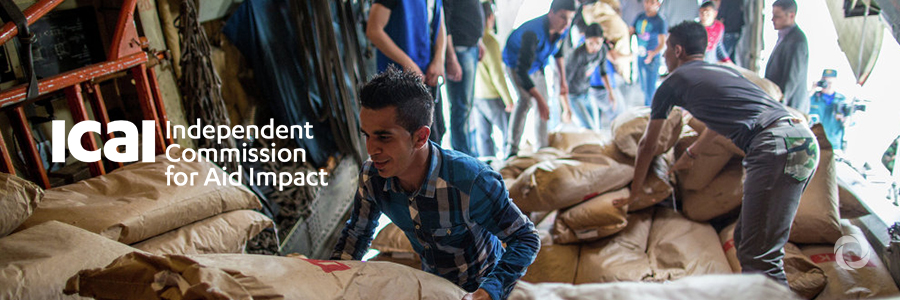While health has been a major focus of UK aid for many years, the response to and lessons from the Ebola crisis stimulated a rapid scaling up of activity and spending to address global health threats.
Between 2014 and 2016 the Ebola crisis killed more than 11,000 people. The outbreak led to a protracted humanitarian emergency in Guinea, Liberia and Sierra Leone, exposed weaknesses in epidemic preparedness and response, and highlighted failings within the World Health Organization (WHO) and across the international health emergency response system.
The response to and lessons from the Ebola crisis prompted a rapid scaling up of activity and spending to address global health threats. ICAI has conducted a review into this scaling up of activity.
The review found that the UK government responded rapidly to address weaknesses in the international response system exposed by the Ebola crisis, developing a coherent and evidence-based framework for addressing global health threats and establishing a portfolio of relevant and often pioneering programmes and influencing activities.
The Stronger, Smarter, Swifter framework provided a strong foundation for a portfolio of aid programmes to help developing countries tackle disease outbreaks more effectively. However, the review recommends that the framework be developed into a global health strategy, published and communicated widely in order to encourage other donors and multilateral agencies to align their activities and spending with the UK’s efforts.
The review found that the UK has been influential in encouraging WHO reform and securing global policy commitments to antimicrobial resistance. However, highlighted some areas of the UK’s influencing strategy that had less success, for example, in encouraging other donors to invest in the WHO Health Emergencies Programme.
Having been quick to capture lessons from the Ebola crisis and build these into its Stronger, Smarter, Swifter strategic framework, this review found that the UK government has not followed through with sufficiently robust evaluation and knowledge dissemination practices.
The review also highlighted the need for an increased focus on strengthening country health systems to improve their ability to respond epidemics and that there is a general need for improvement in cross-government collaboration and communication.
As a result of this ICAI review, we made the following recommendations:
- The UK government should build on the success of the Stronger, Smarter, Swifter framework by developing a refreshed global health security strategy with a clearer focus on strengthening country health systems, a broader set of research priorities and clearly defined mechanisms for collaboration both across departments and with external actors. The strategy should be published and communicated widely.
- The Department of Health and DFID should strengthen and formalise cross-government partnership and coordination mechanisms for global health threats, broadening their membership where relevant. This should include regular cross-government simulations to rehearse how the UK government might coordinate and respond internationally to a future global health threats crisis similar to Ebola, and engage with other actors such as the WHO.
- The government should ensure that DFID has sufficient capacity in place to coordinate UK global health security programmes and influencing activities in priority countries, including around the objective of strengthening national health systems.
- DFID and the Department of Health should work together to prioritise learning on global health threats across government, overseeing the development of a broad evaluation and learning framework, regular reviews of what works (and represents good value for money) across global health security programmes, and a shared approach to the training and development of health advisors.
Original source: Independent Commission for Aid Impact
Published on 31 January 2018

